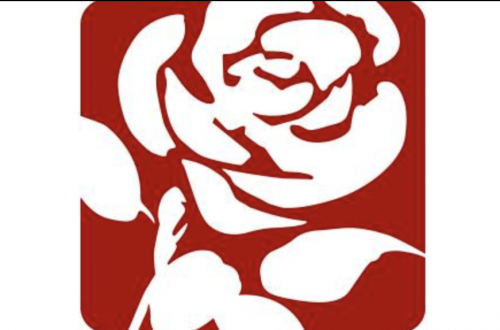This is a cross-post by Jacobinism
This extract is the central section of Jacobin’s post. It opens with a discussion of Leftist relativism in relation to racism and ‘reverse racism’ and concludes with an account of Adele Wilde-Blavatsky’s clash with The Feminist Wire over an article she wrote on Trayvon Martin and Shaima Alawadi: ‘To Be Anti-Racist Is To Be Feminist: The Hoodie and the Hijab Are Not Equals’.
On 20 December, the feminist writer and activist Adele Wilde-Blavatsky published an article in the Huffington Post entitled Stop Bashing White Women in the Name of Beyonce: We Need Unity Not Division. Wilde-Blavatsky’s post was a rebuke to those – on what she described as the post-colonial or intersectional feminist Left – who use identity politics and arguments from privilege to delegitimise the voices of white feminists speaking out about the abuse of women in the Global South and within minority communities in the West.
Wilde-Blavatsky’s decision to use a paragraph in an otherwise banal review of Beyonce’s latest album by Mikki Kendall as the starting point for her argument was, in my view, unfortunate. Not simply because there are better examples of the divisive effect that identity politics has on debate (thequarrel over gender segregation being only the most recent), but because the comparatively unimportant matter of the politics of Beyonce’s music risked trivialising what followed. Nor did the provocative decision to announce a twitter hashtag #stopblamingwhitewomenweneedunity strike me as especially wise.
Nonetheless, such grumbles aside, Wilde-Blavatsky’s substantive quarrel with the malignant effects of identity politics and the cultural relativists who espouse it is one with which regular readers of this blog will be familiar.
She argued, first of all, that Kendall’s casual suggestion that “white feminism” is uniformly anti-male and hostile to the self-empowering feminism Beyonce’s music represents was an unjustifiable extrapolation from the comments of only a few white feminists. This, she said, ignored the pluralism of experience and opinion amongst white feminists and “literally ‘whitewash[es]’ me and all other white women to a flesh colour.” This was predictably interpreted as special pleading on Wilde-Blavatsky’s part, who it was claimed wanted to muscle in on subaltern victimhood. But what she was objecting to here is in fact the straightforward logical fallacy I’ve addressed above.
More importantly, she argued that this pointed to a broader tendency to essentialise ‘white feminism’ as elitist, arrogant, out-of-touch and coddled by privilege, all of which was being used to disqualify white feminists of all stripes from commenting on vital issues of women’s rights within minority groups:
The clear message [is] that if you’re white you cannot criticise anything that is done or said by non-white people unless it follows a certain kind of left liberal ‘post-colonial’ strain of thought.
In support of this claim, she linked to an article by the feminist academic Swati Parashar entitledWhere Are the Feminists to Defend Indian Women? in which Parashar wrote:
Those who are quick to condemn governments which kill women and children in drone attacks in Afghanistan or Pakistan, or who are quick to point out that Western policies have endangered lives of civilians in many parts of the world, find no words to speak out against the violence women in the Global South face repeatedly and every day. Violence against women that is routinely normalised in certain cultures, in certain societies, in certain countries, and violence that cannot be traced to Western militarism or Western foreign policy does not find easy critics. That would not be politically correct nor would it reflect commitment to anti-racism, perhaps.
To which Wilde-Blavatsky added:
[T]o ‘blacken’ the name of the work and efforts of white women in the feminist movement and to portray them as the ‘enemy’ of women of colour is a great disservice not only to white women but also to women in general. In addition, it only serves to further divide women and empower patriarchy and misogyny […] It is no accident that right-wing, religious, misogynist patriarchs are all too happy to recite post-colonial theory and cultural relativism to justify and perpetuate their power and cultural practices that restrict and oppress women of all colours races and cultures […] Issues such as marriage, physical safety and autonomy, access to good family planning and health care, pregnancy, abortion, rape, domestic violence, slut shaming, denial of opportunities in work and education and so on still effect women across all cultures, races and nations (albeit in differing ways). If we allow race and ‘culture’ to divide rather than unite women then the patriarchs have won.
The response to this argument from the bien pensant Left ranged from the incredulous to the vitriolic.
In the comment thread below her article and in a storm which overwhelmed her twitter handle and her hashtag, Wilde-Blavatsky (who tweets as @lionfaceddakini) was derided with accusations of arrogance, ignorance, bigotry, racism and cultural supremacism. She was advised that she had not listened sufficiently closely to authentic voices of women of colour. Others declared her to be beneath contempt and an object example of white feminism’s irrelevance. She was accused of using a fraudulent call for unity as a way of advancing an argument from white victimhood. It was demanded that she immediately re-educate herself by reading various academic texts on the subject. Her “white woman’s tears” were repeatedly mocked, as were her protestations that her own family is mixed-race. And, of course, there were the predictable demands for retraction, penitence and prostration.
The rhetoric of anti-racism has come a long way since Martin Luther King’s passionate call for egalitarian unity, and I submit that it has not been traveling in the right direction. Wilde-Blavatsky retains a faith in King’s idealism her critics appear to have lost. And, to their fury, she won’t budge. But she knew what to expect. After all, as she points out in the piece itself, she’s been here before.
You can read the rest of Jacobin’s post here.


